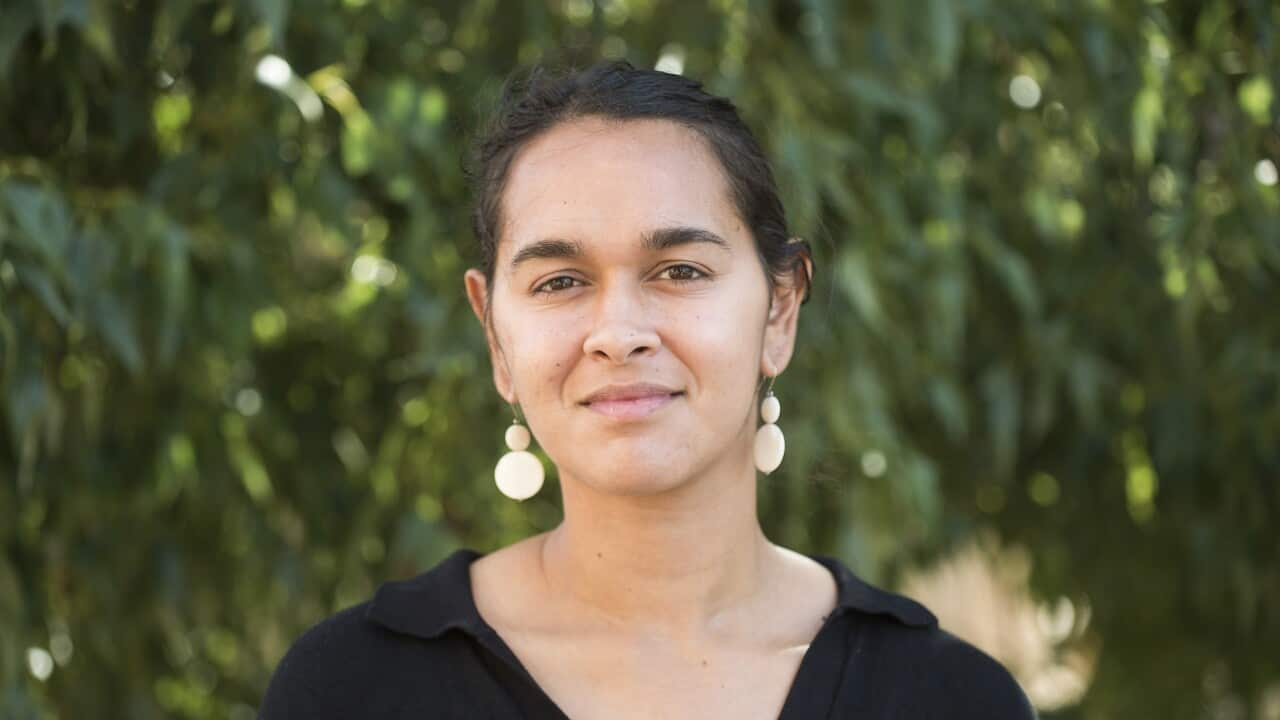It's been a tough week in the Northern Territory for the Warlpiri and Luritja families of Kumanjayi Walker.
The coronial inquest into the 19-year-old's death heard from the former officer who delivered the fatal gun shots on that fateful night in November 2019.
Zachary Rolfe, who has since left the Northern Territory police force, gave harrowing testimony, detailing to the court instances of everyday racism that he said permeated their work.
Witnessing it all has been Warlpiri woman Samara Fernandez-Brown, Kumanjayi Walker's cousin.
"We’re feeling exhausted," she told NITV.
"Rolfe’s evidence [has] been confronting, horrific, and very daunting.
"But at the same time, it really justifies how we as a community feel towards the NT police, and how there’s a lack of trust, a lack of feeling protected or safe when dealing with the police."
Fernandez-Brown has been a tireless advocate for Kumanjayi, often acting as the family's representative in many media appearances since his death.
But she concedes the grinding toll of the proceedings.
On Monday, tensions boiled over when a woman, believed to be Luritja from Kumanjayi's childhood community,
"There are so many of us that feel justice wasn't served in the court [murder trial] and particularly evidence that wasn't put into the murder trial ...
"Obviously it's a space where emotions go flying."
Rolfe spoke to the court of institutional racism with the police, of gifting an Aboriginal weapon to the unit member with the worst hygiene, and rejected accusations he fabricated evidence relating to the night Kumanjayi died.
The court was also shown body-cam footage of instances of use of force while Rolfe was still a cop.
For Fernandez-Brown and the family, it was a compounding traumatic experience.
"The unfortunate thing is, seeing those videos is so confronting, but its no different from stories we’ve already heard," she said.
"In terms of how our family have been treated, even for the most minor infractions, for things that are completely unnecessary.
"Two older Aboriginal men; what part of pushing them over was necessary? It was humiliating and dehumanising. To record that and share it around for a laugh just shows the views of police."
For them, it was a miscarriage of justice, a grievous wound to add to their pain at the loss of Kumanjayi.
Fernandez-Brown says the family are praying for some kind of closure to arise from the coronial inquest.
"Parts of us really want to be hopeful about what's gonna come out of the inquest and the positive change," she said.
"But its so hard to feel like we can be hopeful and we can start our healing process when were not seeing any viable changes, even in the years since we’ve been showing up asking for change."
In the wake of some of Rolfe's evidence, the NT Police Commissioner on Tuesday said there would be an investigation into the accusations of racism within the force.
It's a possible sign of potential change within the force, something Fernandez-Brown says she has been calling for for years.
But she said that investigation would have to wait to take into account the evidence and the eventual findings of the coronial inquest.
"If not then it’s not an extensive enough review," she said.
"Is this just something to save face or is it actually going to actively create safety for Aboriginal and Torres Strait Islander people?
"If we’re not part of the process, how can we say that it's going to be?"












